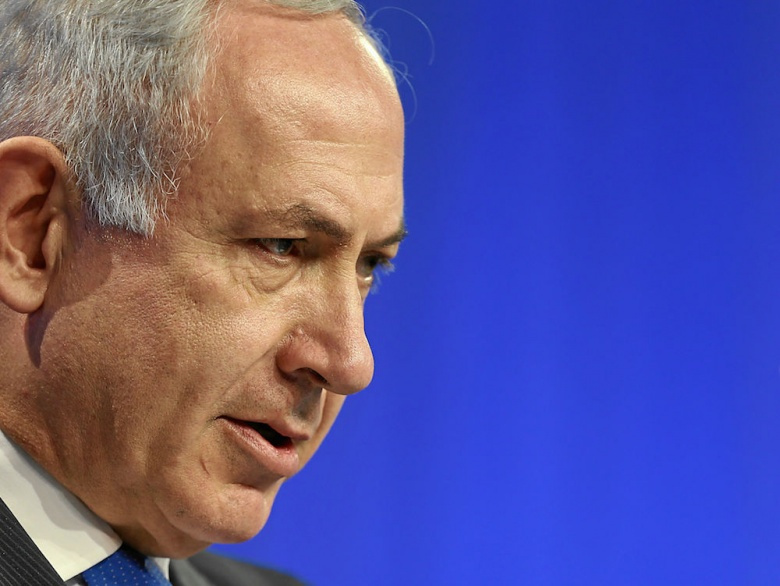Obama’s Nuclear-Zero Delusion Endangers Israel

From the very start of his presidency, Barack Obama has expressed clear preference
for “a world free of nuclear weapons.” In principle, of course, this
openly revealed hope for eventual nuclear disarmament may initially have
sounded altogether admirable and benign. In fact, however, it was never
remotely plausible, and it was also never desirable. Indeed, if nuclear
disarmament had actually been taken seriously as tangible policy
(thankfully, it wasn’t), this
delusionary sentiment could have led the United States and certain
allies to sometime incur very substantial or even incalculable military
harms.
Now, however, it is time to look forward, not backward. Today, in geostrategic terms, and at the incontestable twilight of Obama’s presidency, it is far more important for all Americans to inquire about the nuclear policy sentiments of his likely successor, whether Democrat or Republican. For example, we will need to ask: “Will our next president share Obama’s more-or-less visceral correlation of nuclear military force with evil in world politics?”
Any such correlation seems to have been rooted in the president’s unhidden presumption that nuclear weapons, precisely because of their conspicuously unique power of destructiveness, are more than “merely” dangerous. In this starkly confused view, such weapons are taken to be inherently bad. Here, at least in terms of formal logic, the conclusion doesn’t follow at all from the premises. This conclusion is very plainly fallacious.
But it’s not just a question of errors in logical reasoning. History, too, should instruct our next president that atomic arms are assuredly not per se destabilizing. In many volatile and otherwise still-perilous circumstances, he or she will need to understand, nuclear weapons can even prove to be distinctly peace-enhancing.
This conclusion was most evidently recognizable during and after the Cold War, when two superpowers—Manhattan Project director J. Robert Oppenheimer had then called them “two scorpions in a bottle”—successfully avoided uncontrolled escalations to World War III. Arguably, it should now be borne in mind, without a stabilizing nuclear “balance of terror,” such a conflagration could have been much more likely.
We—the United States and now Russia (no longer the Soviet Union)—are already embroiled in what might best be described as “Cold War II.” Are the same nuclear deterrence lessons apt to apply this time around? Our next president will need, above all else, to ask this core question.
None of this is meant to suggest to President Obama’s successor that further nuclear proliferation would generally be a positive development, or even a potentially tolerable one. Still, there are at least some beleaguered nation-states that could not reasonably hope to survive amid the steadily expanding global chaos without displaying suitably persuasive forms of nuclear deterrence.
Now, however, it is time to look forward, not backward. Today, in geostrategic terms, and at the incontestable twilight of Obama’s presidency, it is far more important for all Americans to inquire about the nuclear policy sentiments of his likely successor, whether Democrat or Republican. For example, we will need to ask: “Will our next president share Obama’s more-or-less visceral correlation of nuclear military force with evil in world politics?”
Any such correlation seems to have been rooted in the president’s unhidden presumption that nuclear weapons, precisely because of their conspicuously unique power of destructiveness, are more than “merely” dangerous. In this starkly confused view, such weapons are taken to be inherently bad. Here, at least in terms of formal logic, the conclusion doesn’t follow at all from the premises. This conclusion is very plainly fallacious.
But it’s not just a question of errors in logical reasoning. History, too, should instruct our next president that atomic arms are assuredly not per se destabilizing. In many volatile and otherwise still-perilous circumstances, he or she will need to understand, nuclear weapons can even prove to be distinctly peace-enhancing.
This conclusion was most evidently recognizable during and after the Cold War, when two superpowers—Manhattan Project director J. Robert Oppenheimer had then called them “two scorpions in a bottle”—successfully avoided uncontrolled escalations to World War III. Arguably, it should now be borne in mind, without a stabilizing nuclear “balance of terror,” such a conflagration could have been much more likely.
We—the United States and now Russia (no longer the Soviet Union)—are already embroiled in what might best be described as “Cold War II.” Are the same nuclear deterrence lessons apt to apply this time around? Our next president will need, above all else, to ask this core question.
None of this is meant to suggest to President Obama’s successor that further nuclear proliferation would generally be a positive development, or even a potentially tolerable one. Still, there are at least some beleaguered nation-states that could not reasonably hope to survive amid the steadily expanding global chaos without displaying suitably persuasive forms of nuclear deterrence.